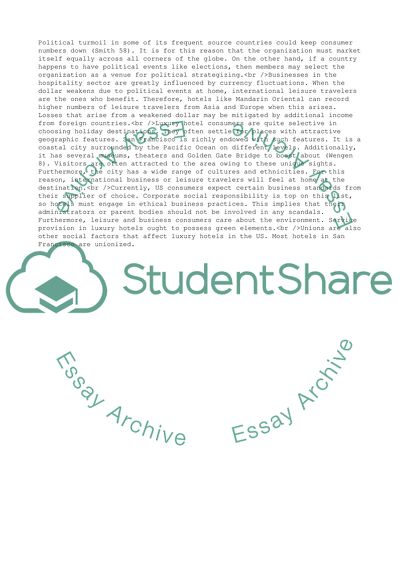Cite this document
(External Analysis of the Hotel Mandarin Oriental Case Study Example | Topics and Well Written Essays - 1500 words, n.d.)
External Analysis of the Hotel Mandarin Oriental Case Study Example | Topics and Well Written Essays - 1500 words. https://studentshare.org/business/1810447-external-environment-analysis-of-a-hotel-mandarin-oriental-san-francisco
External Analysis of the Hotel Mandarin Oriental Case Study Example | Topics and Well Written Essays - 1500 words. https://studentshare.org/business/1810447-external-environment-analysis-of-a-hotel-mandarin-oriental-san-francisco
(External Analysis of the Hotel Mandarin Oriental Case Study Example | Topics and Well Written Essays - 1500 Words)
External Analysis of the Hotel Mandarin Oriental Case Study Example | Topics and Well Written Essays - 1500 Words. https://studentshare.org/business/1810447-external-environment-analysis-of-a-hotel-mandarin-oriental-san-francisco.
External Analysis of the Hotel Mandarin Oriental Case Study Example | Topics and Well Written Essays - 1500 Words. https://studentshare.org/business/1810447-external-environment-analysis-of-a-hotel-mandarin-oriental-san-francisco.
“External Analysis of the Hotel Mandarin Oriental Case Study Example | Topics and Well Written Essays - 1500 Words”. https://studentshare.org/business/1810447-external-environment-analysis-of-a-hotel-mandarin-oriental-san-francisco.


